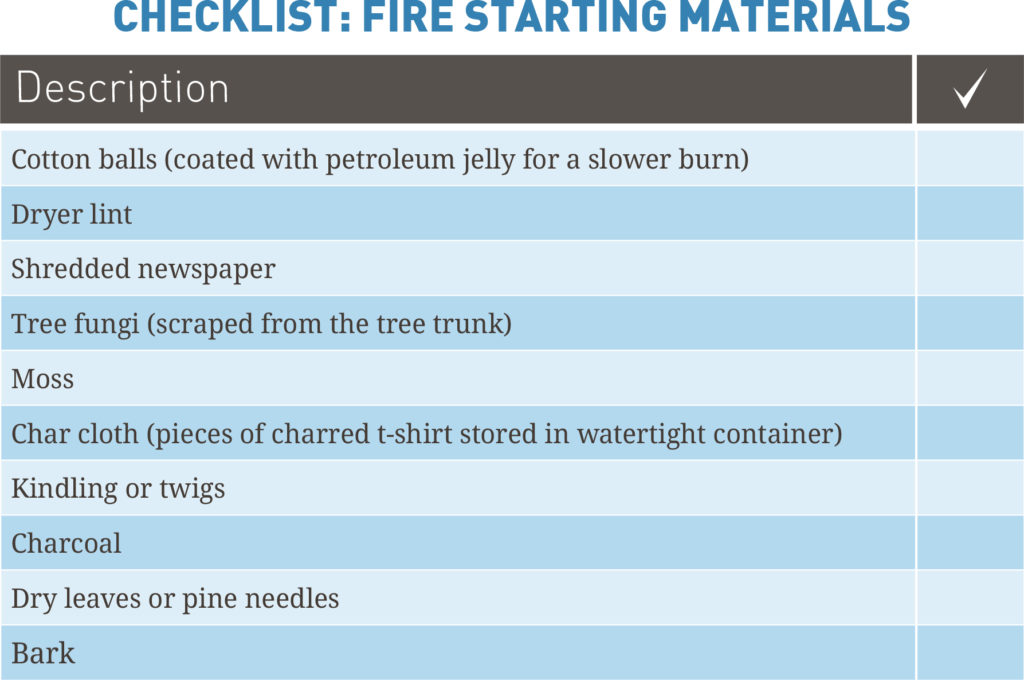FIRE
Can you build a fire….without matches? Probably not, but don’t worry most people if handed a bow drill or friction saw would not be able to produce a fire. Even the most skilled survivalist doesn’t produce a roaring fire every time.
If you plan ahead, primitive fire starting can be bypassed for most short term disasters. That said, having the skill and knowledge to produce primitive fires is ALWAYS a good idea. After all you never know when that zippo isn’t going to light!
There is a good chance you will need to build a fire after a major disaster if you are unable to reach an emergency shelter and are experiencing a power outage.
A fire can be used for:
- Cooking
- Providing heat
- Killing bacteria in water
- Signaling distress
- Sterilizing metal items
- Repelling insects
- Providing light
- Drying clothes
- Providing security lighting
- Repelling predators
Building a fire is not difficult. Starting a fire can be, depending on whether you have matches, a fire starter and decent weather. If the wind is blowing, it is raining, or there’s snow on the ground, starting a fire can be challenging. When you assemble your disaster kit, remember to more than one fire starter.
Like most products today, there are many choices.
- Windproof and waterproof matches
- Wood matches you coat with wax
- Magnesium blocks
- Emergency fuel tablets
- Sterno
- Flint and steel kits
- Fire sticks
- fero rods
- Butane lighter
Inexpensive materials you can use to start a fire include:

If it is sunny outside, and you have a magnifying lens, it is fairly easy to start a fire with kindling. When the kindling begins to smolder, blow on it until it ignites. It is also possible to spark two wires attached to a 9v or higher battery and ignite kindling, but it is important to know what you are doing to avoid injury. Once kindling is lit, it can be transferred to the fire pit.
By the way, you should never start a fire in your shelter. Wherever you do start a fire should have plenty of ventilation and not present the possibility of creating a new disaster by catching something on fire.

